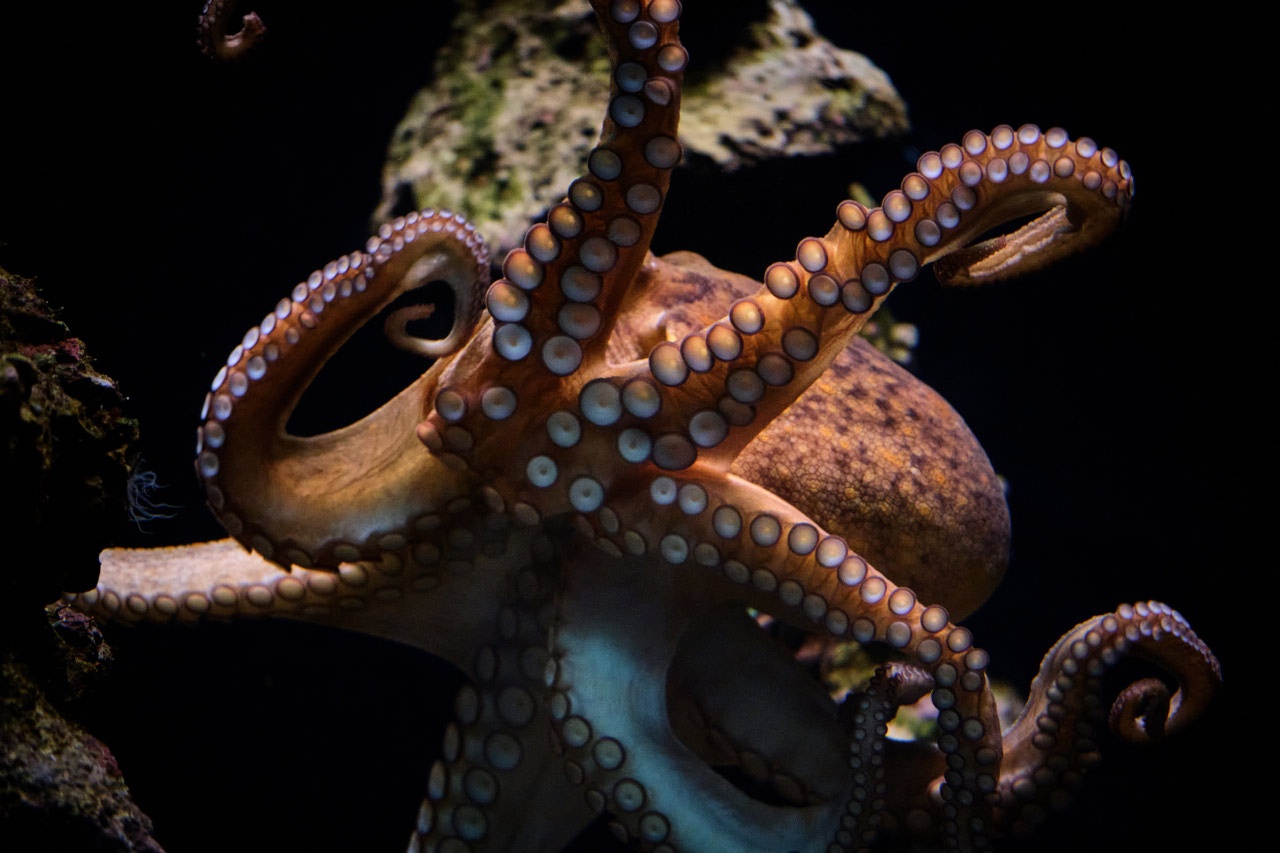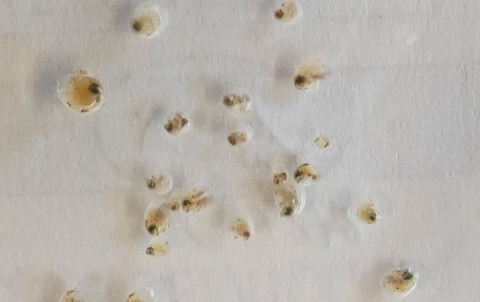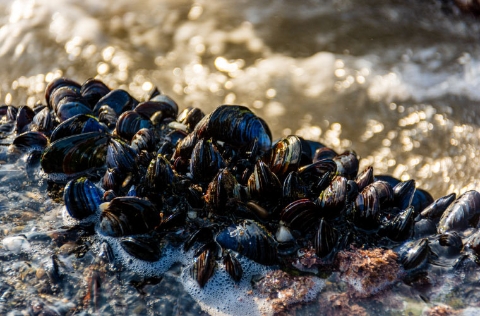
Researchers at the Institute of Marine Research (IIM-CSIC), based in Vigo, have led a study which casts doubt on a commonly used benchmark for assessing stress in animals: the presence of corticosteroids such as cortisol and corticosterone. In the case of the common octopus (Octopus vulgaris), these hormones are entirely absent, indicating that these cephalopods possess fundamentally different physiological mechanisms to vertebrates when it comes to coping with stress.
Published in the American Journal of Physiology, the findings challenge traditional, vertebrate-based models and open up new questions about the welfare of octopuses in aquaculture settings.
The IIM-CSIC team collaborated with the UK’s Centre of Environment, Fisheries and Aquaculture Science (CEFAS), the Pescanova Biomarine Centre in Spain, and the Centre of Marine Sciences of the Algarve, in Portugal. The study was funded by the CSIC and Spain’s Centre for the Development of Industrial Technology (CDTI).
“This species represents a promising candidate for aquaculture diversification, especially across Europe. As interest in octopus farming grows, concerns around animal welfare are naturally following,” said CSIC researcher Josep Rotlant.
In vertebrates, hormone levels are often used as reliable biomarkers for physiological state and animal welfare. The IIM team set out to determine whether the same approach could be applied to octopuses. Using advanced liquid chromatography coupled with mass spectrometry, they confirmed that octopuses do not produce cortisol, corticosterone or cortisone.
“The absence of these compounds in the octopus’s haemolymph supports the evolutionary theory that, as molluscs, they lack a corticosteroid-mediate stress response-fundamentally challenging the vertebrate models traditionally used as a benchmark,” Rotllant explained.
One of the study’s most revealing insights concerns the octopus’s limited ability to adapt to sudden changes in salinity, such as those following heavy rainfall. “This could help explain the recent mass mortality events among octopuses in Galicia’s estuaries, where sudden influxes of freshwater from rainfall caused steep drops in salinity,” the researchers noted.
In animals that do produce cortisol, the hormone plays a vital role in osmotic regulation. The octopus’s lack of this hormonal pathway suggests a reduced capacity for physiological adaptation in such scenarios.
The research also found that although octopuses do not readily absorb cortisol from water, they do show high absorption levels of 17beta-estradiol-a behaviour already observed in other molluscs.
The study’s findings carry important implications for the expanding field of octopus aquaculture, highlighting the need for a deeper understanding of octopus physiology and welfare. They also reinforce the evolutionary gap between invertebrates and vertebrates in terms of hormonal stress regulation-a distinction which may necessitate a rethink of how animal welfare is assessed in aquaculture systems.
The article is titled Studies on cortisol, corticosterone, and 17β-estradiol indicate these steroids have no role in stress or reproduction in the common octopus (Octopus vulgaris) and appears in Volume 328(1) of the American Journal of Physiology – Endocrinology and Metabolism.



